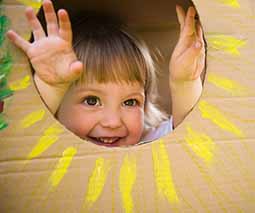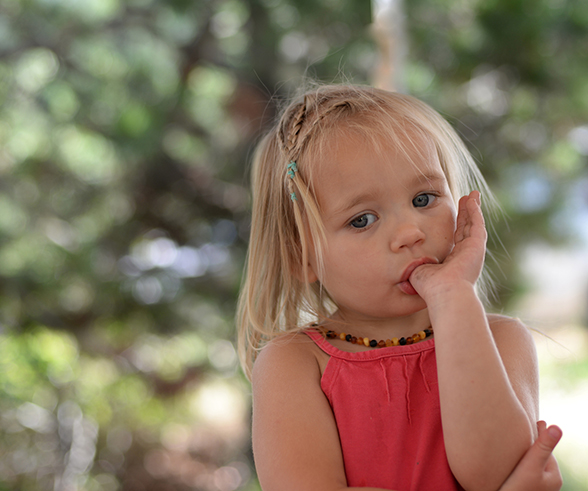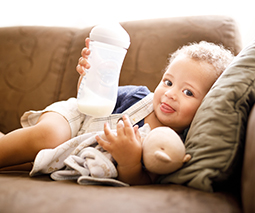Early intervention the key to help kids with autism reach their full potential
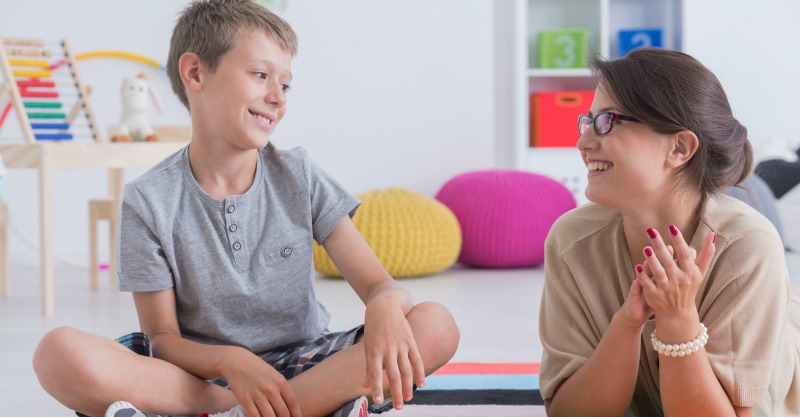
The notion of helping children with autism sooner than later is nothing new. However, experts are keen to emphasise just how crucial early intervention really is so that more parents get the support they need to help set their kids up for life.
Why early is best
For children with autism, even simple tasks such as communicating a need or visiting a new place can be very difficult which is not only frustrating and upsetting for them but extremely challenging for parents and other family members.
According to Tina Robinson, Disability Service Leader at SDN Children’s Services, while children with autism have the capacity to learn, the challenges they face often prevents them from engaging in learning – particularly learning through play. And this is what they need help with as soon as possible.
“Early intervention sets your child up for life,” says Tina. “It focuses on supporting children’s behaviour, social interaction and dealing with any sensory issues so that they can develop the skills they need to live, play and learn.”
How it works
Tailored to meet the individual needs of your child and family, early intervention works with your child’s daily routine and helps you and your family manage the stress points in everyday life. It can also support children who are non-verbal to use other tools to communicate so they can have their needs met. An important part of early intervention also is that other family members, particularly parents, are closely involved so that therapy is reinforced through repetition in everyday life.
Read more about Autism Spectrum Disorder:
- Breakthrough: Autism could be diagnosed in babies thanks to a simple test
- Could it be autism? The red flags my son was waving as a toddler
- Rise in autism due to increase in diagnosis of mild symptoms, study finds
“He was different”
Someone who has benefited greatly from early intervention is six-year-old Carter Back who has autism. His mother, Corina, always knew he was different from his three older siblings, but because others disagreed and he also had significant hearing loss caused by glue ear, he wasn’t officially diagnosed until the age of three.
“As a baby he laughed and said a few words, but by the time he was 15 months he’d lost all that. He also never waved and wouldn’t go to other people, even close family members, and wouldn’t enter a playground if there were other kids there. He even played with his toys differently to my other children. After a suggestion from a doctor and researching I knew deep down that we were facing an autism diagnosis,” says Corina.

What happened next
Therefore, when Carter was finally diagnosed it wasn’t a shock to Corina.
“I know a lot of parents have trouble accepting diagnoses of any kind, but for me it was kind of a relief because it was something I was expecting and I felt validated. It was now official and there was an aim, but because I’d never thought beyond that I suddenly wasn’t sure what to do next.”
A helping hand
Having been given a pamphlet for autism early intervention clinic, SDN Beranga, in Rooty Hill, NSW, Corina rang them the next day and got Carter on a wait list. It wasn’t long before he was accepted and although the results weren’t immediate, as he got used to the centre he started to make friends, communicate better, learn emotions and improve his language.
Before he attended the centre Corina never imagined Carter would be able to attend mainstream school, but after what she calls “18 beautiful months” he reached a stage where he was equipped with enough skills to be able to transition to a mainstream daycare for six months prior to starting regular kindergarten earlier this year.
Leaps and bounds
Carter is now six and although he still struggles with various things (he attends regular Speech and Occupational Therapy, and suffers from sleep issues), he has come such a long way which Corina knows wouldn’t have happened without the support from SDN Beranga.
“Early intervention is so critical to their development, the earlier you can get into any support services is the key. Beranga was amazing for us, we really needed their support and that’s what they gave us. When he was graduated he was able to just walk up to kids and say hi which wasn’t possible previously,” says Corina.
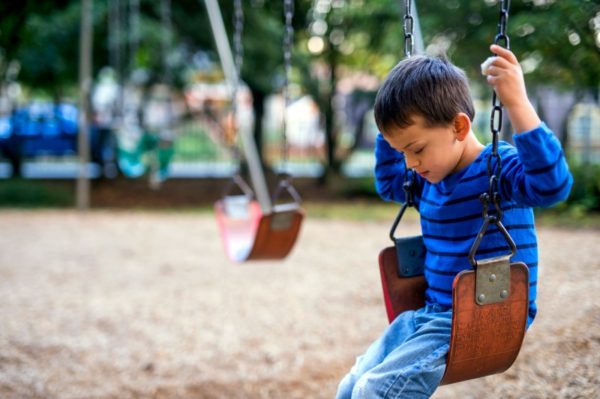
Signs your child might have autism
According to Tina, all children with autism are unique so their behaviour will be as well. However, there are some more common warning signs that parents should take note of including:
- Challenges with social interactions – such as difficulty playing with other children.
- Routines and transitions difficulty – such as trouble with toilet training, mealtimes, bedtime or morning routines.
- Sensory activities – such as not liking the feel of particular textures or getting easily overloaded by sensory stimulation.
- Restricted interests – such as obsessively playing with one toy or loving one particular food.
Having one or some of the above symptoms, however, does not necessarily mean they’re autistic, and likewise, a child with autism also may not display any of these behaviours. So it’s important to speak to experts, and if researching online, only access reputable sources such as the Raising Children Network.
Ask for help
If you suspect there’s something wrong concerning your child, Tina believes the best thing you can do is simply ask for help.
“You are the best person to know if something is not quite right with your child. If you think there might be a problem, ask your local doctor for help and if you still have concerns after talking with them, ask for a referral to a paediatrician,” says Tina.
She warns that receiving a formal diagnosis can be a shock so take a little time to allow yourself to emotionally process the news, and then contact your local Early Childhood Early Intervention (ECEI) provider. ECEI is a government-funded service that helps you access support services in your community and you can find your local provider on the National Disability Insurance Scheme (NDIS) website.
“It does get better”
If you suspect your child might have autism, Corina also advises not to ignore your instincts and act sooner rather than later.
“It can take up to a year to get a diagnosis if you’re not going private but you’ve got to follow it through,” she says. “It’s not a bad thing to be diagnosed with autism, you’ll open up this supportive network of help from doctors and therapists. It’s a team effort and it can be manageable. There’s so much help out there and although it won’t happen overnight, it does get better.”
For more information on SDN Beranga visit their website here. Did you find early intervention helped your child with autism? Share your thoughts with us on Facebook.


